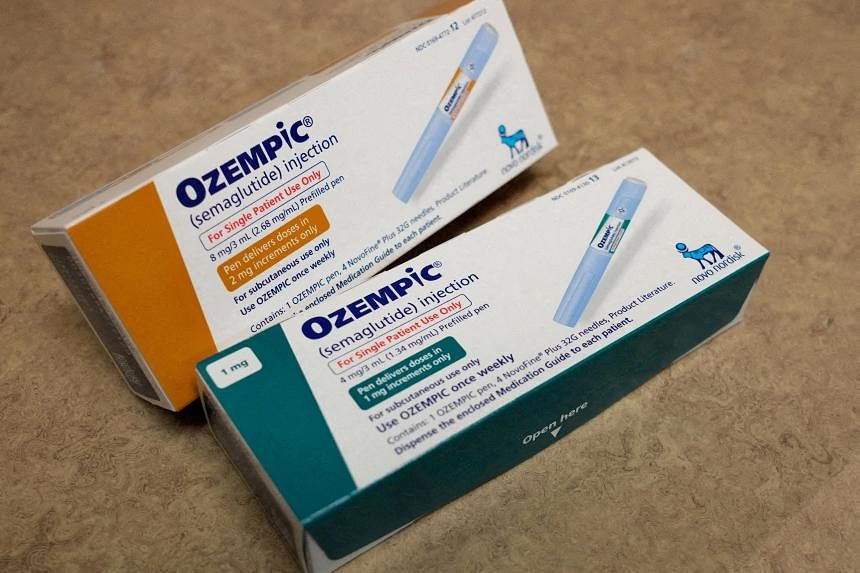LONDON - Demand for a diabetes medicine called Ozempic is soaring as people take it to shed weight, leading to shortages in countries including Britain, Germany, Belgium and the United States.
What is it?
Semaglutide, developed by Novo Nordisk over decades, is the active ingredient in Type 2 diabetes treatments Ozempic and Rybelsus, as well as Wegovy, which is used for weight loss only.
Ozempic and Wegovy are delivered by weekly injection; Rybelsus is a pill.
Known as a glucagon-like peptide 1 (GLP-1) receptor agonist, it mimics a hormone produced in the gut that helps regulate blood sugar and appetite.
Semaglutide in injected form was first approved for use in the US as a treatment for Type 2 diabetes in 2017. It was approved there for weight control in 2021.
What’s the problem?
More than 650 million people globally were estimated by the World Health Organisation to be obese in 2016, and about 480 million have Type 2 diabetes, according to the International Diabetes Foundation.
Supply of semaglutide is not keeping pace with demand.
Novo, which produces the key ingredients for its treatments at its own factories in Denmark and in the US, said on Nov 2 that it expects “continued periodic supply constraints and related drug shortage notifications across a number of products and geographies”.
On Nov 10, the company announced it would spend US$6 billion by end-2029 to expand its Kalundborg site in Denmark, mainly to boost output of active pharmaceutical ingredient including semaglutide. This year, it is spending just over US$2 billion.
The investment will also expand its capacity to fill the pens used to inject the drugs - a process known as fill-finish, it said. It declined to give further details.
Booming demand for both drugs has propelled Novo Nordisk to its highest-ever profits. In September, it became Europe’s most valuable company.
What have countries done?
In July, Britain urged clinicians to prescribe only Ozempic and six other medicines from the GLP-1 class for their licensed uses, not for weight loss.
Belgium issued a new law on Nov 14, banning doctors from prescribing Ozempic and other GLP-1 drugs for weight loss unless their patient’s BMI is 35 or above and they have at least one underlying health condition. People taking part in clinical trials for drugs based on semaglutide may also continue to take it.
The curbs will be in force until August 2024, but may end sooner if supplies improve, a spokesperson for the health ministry said.
Germany is considering banning Ozempic exports, saying the drug is being taken out of the country because it is cheaper there than elsewhere, and demand is driven by use for weight loss. REUTERS

